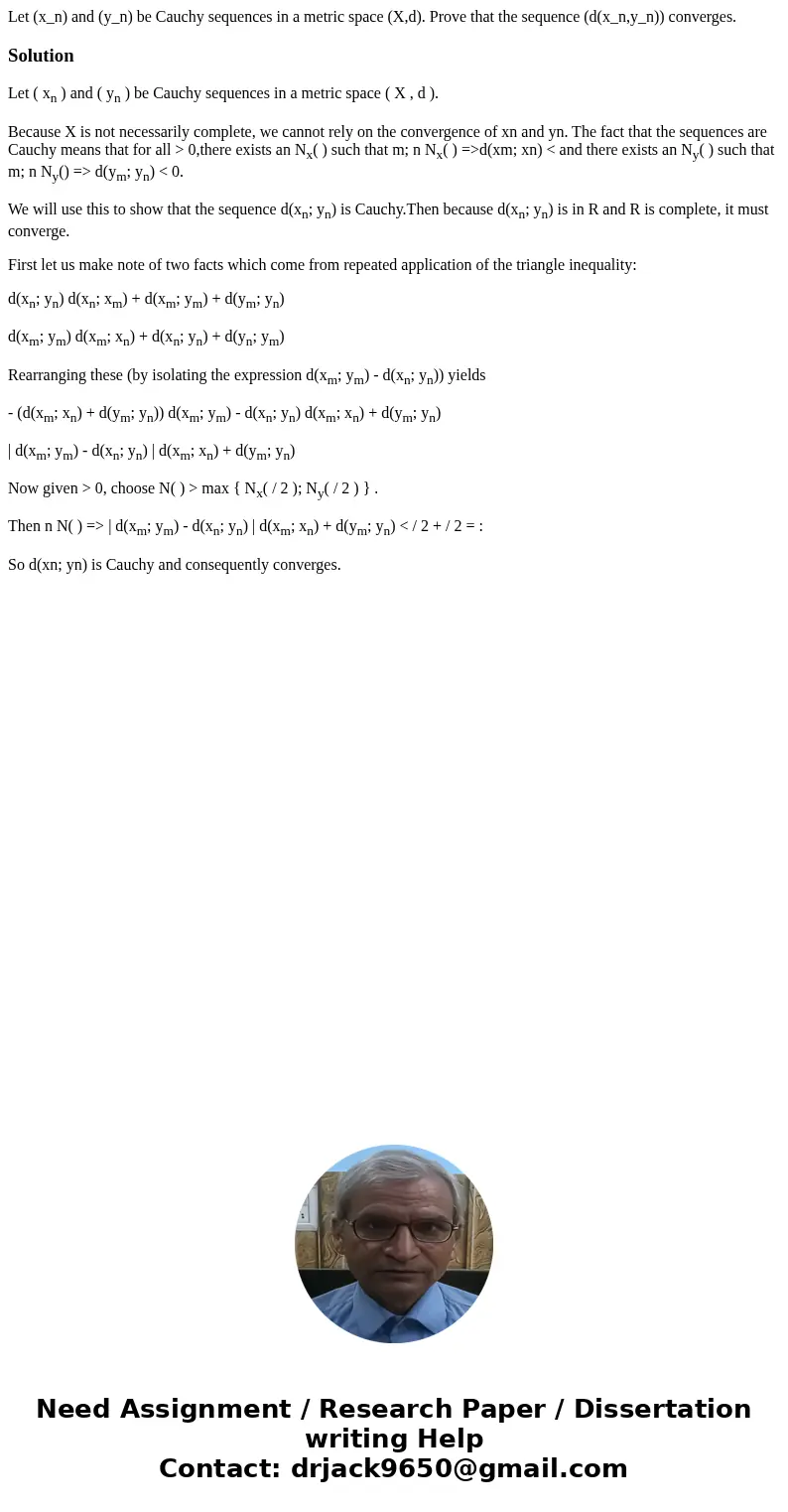Let xn and yn be Cauchy sequences in a metric space Xd Prove
Solution
Let ( xn ) and ( yn ) be Cauchy sequences in a metric space ( X , d ).
Because X is not necessarily complete, we cannot rely on the convergence of xn and yn. The fact that the sequences are Cauchy means that for all > 0,there exists an Nx( ) such that m; n Nx( ) =>d(xm; xn) < and there exists an Ny( ) such that m; n Ny() => d(ym; yn) < 0.
We will use this to show that the sequence d(xn; yn) is Cauchy.Then because d(xn; yn) is in R and R is complete, it must converge.
First let us make note of two facts which come from repeated application of the triangle inequality:
d(xn; yn) d(xn; xm) + d(xm; ym) + d(ym; yn)
d(xm; ym) d(xm; xn) + d(xn; yn) + d(yn; ym)
Rearranging these (by isolating the expression d(xm; ym) - d(xn; yn)) yields
- (d(xm; xn) + d(ym; yn)) d(xm; ym) - d(xn; yn) d(xm; xn) + d(ym; yn)
| d(xm; ym) - d(xn; yn) | d(xm; xn) + d(ym; yn)
Now given > 0, choose N( ) > max { Nx( / 2 ); Ny( / 2 ) } .
Then n N( ) => | d(xm; ym) - d(xn; yn) | d(xm; xn) + d(ym; yn) < / 2 + / 2 = :
So d(xn; yn) is Cauchy and consequently converges.

 Homework Sourse
Homework Sourse